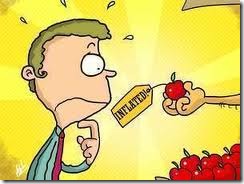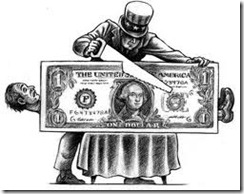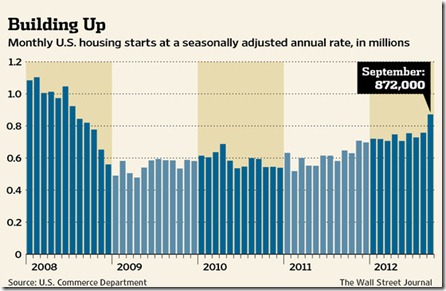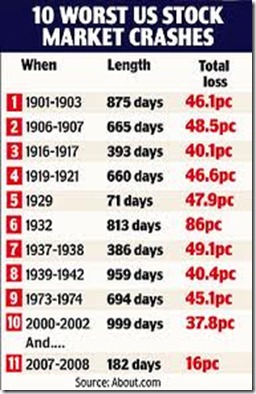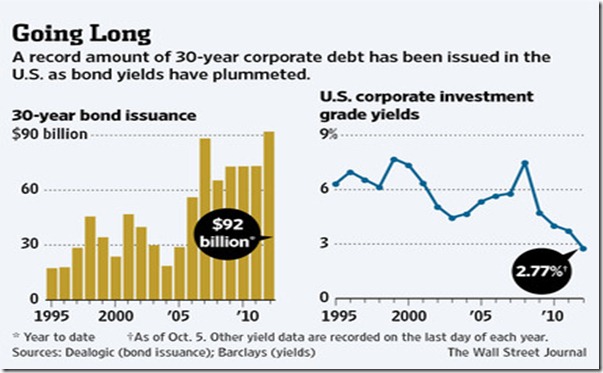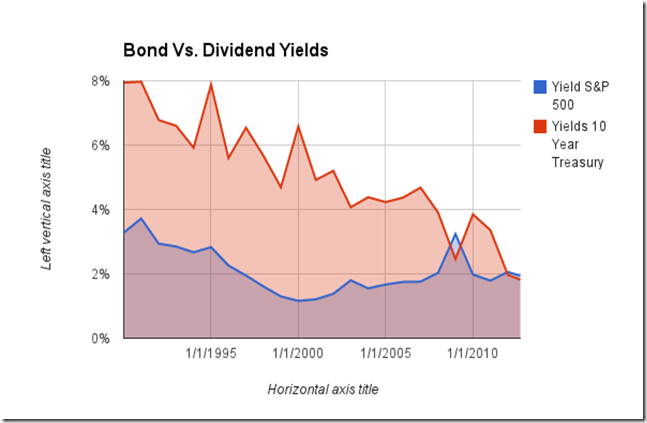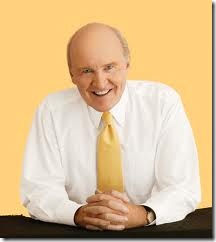 For us old poop- investors October has a history of being a real scary month. The great depression started October 29, 1929 and that day the Dow lost 12 1/2%. October 1987 was worse, percentage-wise, and fell over 500 points and 22% off its average- equivalent to about a 3,000 drop today. Adding 2008 October to the trio is easy since the markets were down all year and at one point that October the Dow was off 27%. October may only be a mental challenge but investors are cautioned that more work is needed economically and politically before markets may enjoy a semi-worry free work environment. All investors should have some cash sitting on the sidelines to snatch bargains. A wish list of companies and at prices that you agree to buy should also be kept. It’s difficult to make money when a market is running away. The inclination is to charge ahead and buy something- anything- unfortunately by the time you make up your mind its either lost momentum or started a decline. Since most of us are adults it’s time we did what smart investor do and that is buy when others are selling and the markets are falling. The following is from The Street and suggestions from Jimmy Cramer.
For us old poop- investors October has a history of being a real scary month. The great depression started October 29, 1929 and that day the Dow lost 12 1/2%. October 1987 was worse, percentage-wise, and fell over 500 points and 22% off its average- equivalent to about a 3,000 drop today. Adding 2008 October to the trio is easy since the markets were down all year and at one point that October the Dow was off 27%. October may only be a mental challenge but investors are cautioned that more work is needed economically and politically before markets may enjoy a semi-worry free work environment. All investors should have some cash sitting on the sidelines to snatch bargains. A wish list of companies and at prices that you agree to buy should also be kept. It’s difficult to make money when a market is running away. The inclination is to charge ahead and buy something- anything- unfortunately by the time you make up your mind its either lost momentum or started a decline. Since most of us are adults it’s time we did what smart investor do and that is buy when others are selling and the markets are falling. The following is from The Street and suggestions from Jimmy Cramer.
Cramer’s Top Moe-mentum Stocks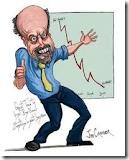 In the spirit of Halloween
In the spirit of Halloween
- Amazon

- Visa
- Mastercard
- Ulta Salon
- Tractor Supply
- Sherwin-Williams
- Diageo
- Alexion Pharmaceuticals
- Gilead Sciences These are not offers to buy or sell. Please do your homework prior to purchasing any securities.
Nature is all about balance. Something we can take a lesson from.  Ever notice how symmetrical a healthy tree grows? Investors can take a lesson. Trees balance themselves against wind and elements by having their branches pretty much equal on all sides. Give a tree too much artificial fertilizer and water and you’ll get a tree that has shallow roots. Allow a tree to work for its food and roots will grow deep and stabilize the tree against storms and powerful winds. Develop an investment plan that does that and you’ll be just fine for the long haul. Think energy, retail, manufacturing, finance, cash, debt, foreign and domestic. And, remember, just like a tree you have to keep replacing branches in your investment plan. Too many investors think that if they leave things alone they’ll be better off.
Ever notice how symmetrical a healthy tree grows? Investors can take a lesson. Trees balance themselves against wind and elements by having their branches pretty much equal on all sides. Give a tree too much artificial fertilizer and water and you’ll get a tree that has shallow roots. Allow a tree to work for its food and roots will grow deep and stabilize the tree against storms and powerful winds. Develop an investment plan that does that and you’ll be just fine for the long haul. Think energy, retail, manufacturing, finance, cash, debt, foreign and domestic. And, remember, just like a tree you have to keep replacing branches in your investment plan. Too many investors think that if they leave things alone they’ll be better off.
The movie- Hotel Transylvania was #1 in the box office in … Romania –Birthplace of Vlad the Impaler.
Romania –Birthplace of Vlad the Impaler.
Not much news from the US press that Canada was the only G7 nation that didn’t have a  financial banking crisis that needed a bailout. Yes, our frosty neighbors ignored their big bank pleas that they needed to get bigger and in the end, by ignoring banking pressures, they were a nation of winners. Canadian officials said to their big banks about mergers, ‘No way, eh.’ Tighter regulation, better oversight and ignoring pleas for merger has made Canadian banks the best in the world. The banks are also required to do more rigorous loan underwriting and have larger reserves than US banks. Our banks lobby for less regulation, usually get it, They also understand that our government will never let one of the majors fail. As long as that sword hangs over Washington our financial incompetence will continue. In Canada regulations rule and in the U.S. banks lobby and get what they want.
financial banking crisis that needed a bailout. Yes, our frosty neighbors ignored their big bank pleas that they needed to get bigger and in the end, by ignoring banking pressures, they were a nation of winners. Canadian officials said to their big banks about mergers, ‘No way, eh.’ Tighter regulation, better oversight and ignoring pleas for merger has made Canadian banks the best in the world. The banks are also required to do more rigorous loan underwriting and have larger reserves than US banks. Our banks lobby for less regulation, usually get it, They also understand that our government will never let one of the majors fail. As long as that sword hangs over Washington our financial incompetence will continue. In Canada regulations rule and in the U.S. banks lobby and get what they want.
Didja know my web site updates each month new financial articles  on a variety of subjects from estate planning to buying homes. There is a huge library of information in compact form that’ll help you understand a financial concept without having a sales talk linked to it. I also have calculators on bill paying, home refinancing and retirement planning, to name just a few. I use these same calculators everyday. I am one of the first financial professionals to offer clients an independent web site. Also one of the very few working financial professionals to write a client blog each and every week for clients and their friends. Take a tour of www.primaryplanner.com and see if there is something you can use. Tell a friend ‘cause its free, no registration, no cookie tracking. Almost every broker uses a company website and/or blog or a cookie cutter newsletter and claim its theirs.
on a variety of subjects from estate planning to buying homes. There is a huge library of information in compact form that’ll help you understand a financial concept without having a sales talk linked to it. I also have calculators on bill paying, home refinancing and retirement planning, to name just a few. I use these same calculators everyday. I am one of the first financial professionals to offer clients an independent web site. Also one of the very few working financial professionals to write a client blog each and every week for clients and their friends. Take a tour of www.primaryplanner.com and see if there is something you can use. Tell a friend ‘cause its free, no registration, no cookie tracking. Almost every broker uses a company website and/or blog or a cookie cutter newsletter and claim its theirs.
Scare Mongers Have Rumored That There is No Gold in Fort Knox or Anywhere in The United States.  Saying that the U.S. either sold or never had large reserves of gold talk-show scare artists have convinced a percentage of Americans into investing in olive oil or some other commodity they say will replace precious metals as a currency when the world goes poof.
Saying that the U.S. either sold or never had large reserves of gold talk-show scare artists have convinced a percentage of Americans into investing in olive oil or some other commodity they say will replace precious metals as a currency when the world goes poof.  I have a list of countries with the largest holdings of gold. Low borrowing costs and the support of financial markets spur gold accumulation. Gold is no longer an inflation hedge -it’s also a currency hedge against devaluation of paper money. Counting down from 10 the countries with the largest reserves:
I have a list of countries with the largest holdings of gold. Low borrowing costs and the support of financial markets spur gold accumulation. Gold is no longer an inflation hedge -it’s also a currency hedge against devaluation of paper money. Counting down from 10 the countries with the largest reserves:
- India
- Netherlands
- Japan
- Russia
- Switzerland
- China
- France
- Italy
- Germany
- United States- has 74% of total foreign reserves, more than double that of #2 Germany.
BYE-BYE P.C.’s…. Microsoft is testing software for the mobile devise era. The company is also offering a tablet, like Apple, Google and Amazon. Consumers are shifting their attention to smart-phones and tablets.
Microsoft is testing software for the mobile devise era. The company is also offering a tablet, like Apple, Google and Amazon. Consumers are shifting their attention to smart-phones and tablets.
CNBC ‘After the Bell’, interviewed  Bloomberg’s Tom Demark who correctly predicted the China market bottom and also said that U.S. stocks may have one more gasp in 2012 to 1478 on the S&P 500 before a pretty ugly swan dive (that’s according to Tom D). U.S. stocks have topped all other assets for the first time since 1995. Numero dos is emerging markets. But domestic stocks have beat out bonds, commodities and even (gasp) the dollar. Credit can be given to the Federal Reserve that supported U.S. growth. Wall Street strategists tracked by Bloomberg predict the S&P 500 may surpass its all-time high next year. The consensus is that they think it’ll be 1.7% higher than October, 2007. The Emerging Markets MSCI index is up 9.8% year to date, on tracking 21 developing countries such as China, Brazil and Russia.
Bloomberg’s Tom Demark who correctly predicted the China market bottom and also said that U.S. stocks may have one more gasp in 2012 to 1478 on the S&P 500 before a pretty ugly swan dive (that’s according to Tom D). U.S. stocks have topped all other assets for the first time since 1995. Numero dos is emerging markets. But domestic stocks have beat out bonds, commodities and even (gasp) the dollar. Credit can be given to the Federal Reserve that supported U.S. growth. Wall Street strategists tracked by Bloomberg predict the S&P 500 may surpass its all-time high next year. The consensus is that they think it’ll be 1.7% higher than October, 2007. The Emerging Markets MSCI index is up 9.8% year to date, on tracking 21 developing countries such as China, Brazil and Russia.
 Markets tumbled Tuesday- Dupont and 3M global earning concerns sent stocks skidding over 240 points. Commodities also joined. We may see gasoline prices fall at the pump sooner than later- probably just in time for the Holidays. Apple brought out its mini-iPad but what the Street and critics were wowed by was the new MacBook, which is as thin and sleek as a fashion model.
Markets tumbled Tuesday- Dupont and 3M global earning concerns sent stocks skidding over 240 points. Commodities also joined. We may see gasoline prices fall at the pump sooner than later- probably just in time for the Holidays. Apple brought out its mini-iPad but what the Street and critics were wowed by was the new MacBook, which is as thin and sleek as a fashion model. The Federal Reserve Bank in Richmond added to the angst with a mixed report on factory activity- saying activity contracted in September but less than the month before. Facebook made Mobile Gains. Seven months ago the company had nothing-zip-nada income from mobile ads and last week reported $153 million in revenue. Zuckerberg said mobile ad sales were the most misunderstood by critics of the Facebook business. Shares were up 12% in after hour trading last Tuesday.
The Federal Reserve Bank in Richmond added to the angst with a mixed report on factory activity- saying activity contracted in September but less than the month before. Facebook made Mobile Gains. Seven months ago the company had nothing-zip-nada income from mobile ads and last week reported $153 million in revenue. Zuckerberg said mobile ad sales were the most misunderstood by critics of the Facebook business. Shares were up 12% in after hour trading last Tuesday. 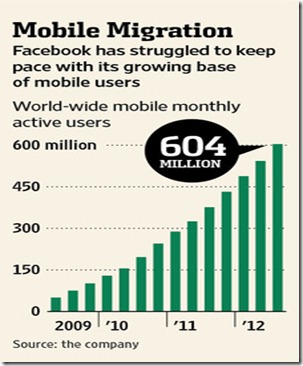 Wednesday shares moved even higher- 20% pop as analysts mumbled their revisions saying that they didn’t expect the company to turnaround mobile ads this quick.
Wednesday shares moved even higher- 20% pop as analysts mumbled their revisions saying that they didn’t expect the company to turnaround mobile ads this quick. 
$8 billion Americans Are expected to spend on Halloween. It’s become the #2 Holiday with 71.5% who celebrate Halloween. 
 Mark this down- Autos, health care and housing a pent-up demand, according to portfolio analyst Chris Buchbinder. With an older generation using more healthcare going forward there is a growing demand. Also a huge pent-up demand for cars and housing as we grow our way out of the recession…er depression. Certainly healthcare spending is going to increase.
Mark this down- Autos, health care and housing a pent-up demand, according to portfolio analyst Chris Buchbinder. With an older generation using more healthcare going forward there is a growing demand. Also a huge pent-up demand for cars and housing as we grow our way out of the recession…er depression. Certainly healthcare spending is going to increase.
 Slip, sliding away…hovering near even throughout the trading day Wednesday markets went sour in the afternoon- slightly. Gold up and oil up but in pennies and still under $90. The slip slide began when the Federal Reserve provided an upbeat view of the economy but said it would not scale back an aggressive stimulus started a month earlier. Thirty year mortgage rates have fallen to 3.37% from 3.55%. The Fed continued to voice that they would keep rates at extreme lows through mid-2015.
Slip, sliding away…hovering near even throughout the trading day Wednesday markets went sour in the afternoon- slightly. Gold up and oil up but in pennies and still under $90. The slip slide began when the Federal Reserve provided an upbeat view of the economy but said it would not scale back an aggressive stimulus started a month earlier. Thirty year mortgage rates have fallen to 3.37% from 3.55%. The Fed continued to voice that they would keep rates at extreme lows through mid-2015.
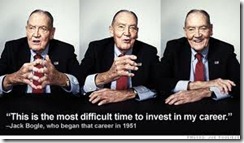 Jack Bogle, of Vanguard Funds, tossed another 2 cents into the financial management swamp by saying in a Morningstar interview that this (right now) was the most difficult investment condition he has ever seen. Jack, being in his 80s, has certainly seen a goodly number of stressful times but I wonder if he was being over the top. He does say that investors should think less- about half of what Jeremy Siegel said – as a goal of the market’s historical norm. The Bogle said investors should think 7% return on equities and 2.25% on bonds. He also said investors shouldn’t take increased risk to get higher returns but the opposite. Going a bit longer on the maturity risk, which he explains is not a credit risk but a volatility risk and mixing corporates and Treasuries maybe 70/30 maximum. That being said he finished an interview by reminding people that with taxes and inflation the returns on equities should run about 4.5% and 2% on bonds.
Jack Bogle, of Vanguard Funds, tossed another 2 cents into the financial management swamp by saying in a Morningstar interview that this (right now) was the most difficult investment condition he has ever seen. Jack, being in his 80s, has certainly seen a goodly number of stressful times but I wonder if he was being over the top. He does say that investors should think less- about half of what Jeremy Siegel said – as a goal of the market’s historical norm. The Bogle said investors should think 7% return on equities and 2.25% on bonds. He also said investors shouldn’t take increased risk to get higher returns but the opposite. Going a bit longer on the maturity risk, which he explains is not a credit risk but a volatility risk and mixing corporates and Treasuries maybe 70/30 maximum. That being said he finished an interview by reminding people that with taxes and inflation the returns on equities should run about 4.5% and 2% on bonds.
Blackrock Investment Institute prepared a  complete analysis on what would happen to the economy and to the markets specifically if one or the other of the candidates were elected in the next few weeks. Certainly the writers do not know what would happen with certainty but there seems to be a consistent theme in the report that political types in Washington would be at fault in either case to allow bad things to happen. There is a small light that mulled the possibility of both parties may grow-up and do what they were elected to do- but according to the BII a very small and narrow possibility. If you didn’t get this report by email call or e me and I’ll resend. I spoke with several fund companies (see below) and I’ll have more on this next week.
complete analysis on what would happen to the economy and to the markets specifically if one or the other of the candidates were elected in the next few weeks. Certainly the writers do not know what would happen with certainty but there seems to be a consistent theme in the report that political types in Washington would be at fault in either case to allow bad things to happen. There is a small light that mulled the possibility of both parties may grow-up and do what they were elected to do- but according to the BII a very small and narrow possibility. If you didn’t get this report by email call or e me and I’ll resend. I spoke with several fund companies (see below) and I’ll have more on this next week.
Sun Life of Canada- selling its U.S. annuitity business. Interested parties include hedge funds. If you own a SunLife annuity call me or watch for changes in benefits, saving menu or allocation.
Tropical Storm Sandy forces closing of vital Gulf refineries. Gas prices will rise after experts called a gas price drop.
Friday last I spoke with people at JP Morgan,  SunAmerica and Franklin-Templeton to see what their analysts were predicting for 2013. They said the U.S. would still be in a slow-growth mode, no matter who was elected. They did repeat that dividends made sense, strategic bond funds and emerging markets. No one saw a catastrophic economic meltdown. On the Fiscal Cliff all expected politicians to do something more for self-preservation than anything else. Yes, there could be a large correction but not permanent.
SunAmerica and Franklin-Templeton to see what their analysts were predicting for 2013. They said the U.S. would still be in a slow-growth mode, no matter who was elected. They did repeat that dividends made sense, strategic bond funds and emerging markets. No one saw a catastrophic economic meltdown. On the Fiscal Cliff all expected politicians to do something more for self-preservation than anything else. Yes, there could be a large correction but not permanent.
Surprise!  Friday news that U.S. economy grew at 2% rate in the third quarter- fueled by consumer spending (Bless you!), defense outlays and homebuilding. Consumer confidence rose to a 5 year high- highest since September, 2007. Mortgage rates- or the lowest ever rates- are stoking home buying demand. Demand was up 27% up from One Year Ago. Business is sitting on its hands doing nothing- so business investment is pathetically weak. International companies are also cutting forecasts on slowing Europe and Asia. Conservative planning is in place, said Honeywell CEO David Cole, ‘ there is nothing out there to suggest anything but continued conservative planning at best.’
Friday news that U.S. economy grew at 2% rate in the third quarter- fueled by consumer spending (Bless you!), defense outlays and homebuilding. Consumer confidence rose to a 5 year high- highest since September, 2007. Mortgage rates- or the lowest ever rates- are stoking home buying demand. Demand was up 27% up from One Year Ago. Business is sitting on its hands doing nothing- so business investment is pathetically weak. International companies are also cutting forecasts on slowing Europe and Asia. Conservative planning is in place, said Honeywell CEO David Cole, ‘ there is nothing out there to suggest anything but continued conservative planning at best.’
 Markets closed Monday and will await news if they open on Tuesday due to storm.
Markets closed Monday and will await news if they open on Tuesday due to storm.
Finally- Zacks.com commented on Apple’s miss and the expectation of the S&P dipping below 1400 along with Apple testing its 200 day at $585- both, Kevin Cook at Zacks wrote, are big buying opportunities.
Questions call Paul @ 586 783 7080 or write him at pstanley@westminsterfinancial.com. Share this blog with someone who cares about their money.

